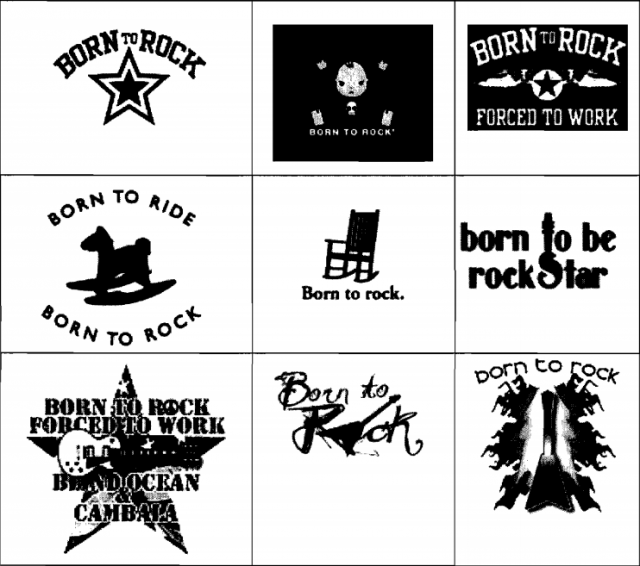A guitar design firm called Born to Rock has won an initial victory over the user-generated T-shirt-printing website CafePress in a legal battle over whether CafePress users will be allowed to use the company's name as part of their T-shirt designs. While the guitar firm initially registered the phrase only for use selling guitars, it has taken the position that any use of the phrase "born to rock" by a CafePress user infringes its trademarks.
CafePress is a popular website that allows users to create their own graphical designs and have them printed on T-shirts, mugs, and other items. It sells these items on users' behalf and splits the proceeds.
Born to Rock Design first sent CafePress a cease and desist letter in 2009, asking it to remove all items involving the phrase "born to rock." CafePress resisted the company's demands, arguing that the use of the mark was permitted under trademark law's fair use doctrine. But Born to Rock wasn't satisfied with this response. After filing a new trademark application formally claiming the phrase "Born to Rock" for use in selling T-Shirts in addition to guitars, it sued CafePress for trademark infringement.
Eric Goldman notes that earlier this month, the court issued a preliminary ruling rejecting CafePress' request to dismiss the lawsuit. CafePress made several arguments, the most important of which was that its users are using the phrase "born to rock" as an ordinary English phrase, not a reference to the guitar manufacturer's products. That, CafePress argued, meant that the use was excused by trademark law's fair use doctrine.
Looking at a sample of the images at the heart of the dispute gives some plausibility to this argument:

It seems pretty clear that, for example, a T-shirt with a picture of a rocking chair and the phrase "born to rock" is not a reference to Born to Rock guitars.
But Judge Colleen McMahon ruled that not all of the images were so clear-cut. Some do involve guitars, and she said it would be up to a jury to decide which images were references to the guitar trademark and which were merely ornamental uses of the phrase.
As Goldman notes, the ruling puts CafePress in a bit of a bind. It may eventually prevail in court, but not without racking up a lot of legal bills first. And the fact that its liability depends on the details of each design means the company is likely to face more lawsuits like this one—as indeed it has faced at least one such lawsuit in the past. That may force CafePress to become more trigger-happy about removing merchandise in the face of complaints by trademark requests, which could open the door to abusive takedown demands by trademark holders.
Yet CafePress' user-generated business model and the complexity of trademark law may make it impractical for the company to pre-screen design submissions. And even if it did begin vetting designs before accepting them, that might lead to higher liability down the road, since trademark owners could argue that CafePress bore greater responsibility for designs after having specifically vetting them.
This kind of catch-22 is why Congress established a "safe harbor" that shields online service providers from liability for copyright-infringing content submitted by users if they respond promptly to takedown notices. But there's no analogous safe harbor available in this kind of trademark case.
reader comments
92